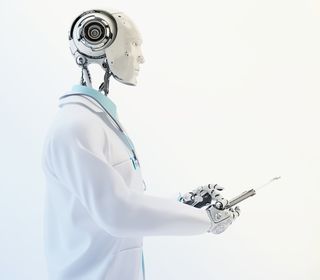An Algorithm for Alzheimer's
A new tool may help diagnose Alzheimer's more quickly and efficiently.
By Abigail Fagan published March 5, 2019 - last reviewed on August 22, 2019

The prevalence of Alzheimer's is expected to soar in the coming decades as the population ages. To diagnose the disease as early as possible, scientists are searching for efficient new methods—and a recently tested tool correctly identified the seven people from a pool of 40 who later developed the disorder.
Researchers fed a deep learning program brain images that captured metabolic activity in about 1,000 patients, including individuals with Alzheimer's or mild cognitive impairment and a control group. The machine used 90 percent of the sample to learn and demonstrated through the last 10 percent that it could identify those patterns related to Alzheimer's. When the researchers tested the final product on brain scans from 40 subjects, the algorithm identified every individual who developed Alzheimer's six years later. It also mistakenly labeled five other individuals who did not develop the disease. But overall, the program outperformed radiologists who reviewed the scans to diagnose the disorder.
The approach is one of several, including blood tests, that may provide a more affordable and widely available diagnostic tool than imaging techniques that rely on hallmarks such as beta amyloid and tau proteins, says lead study author Jae Ho Sohn, a resident at UC San Francisco.
LinkedIn Image Credit: LightField Studios/Shutterstock
